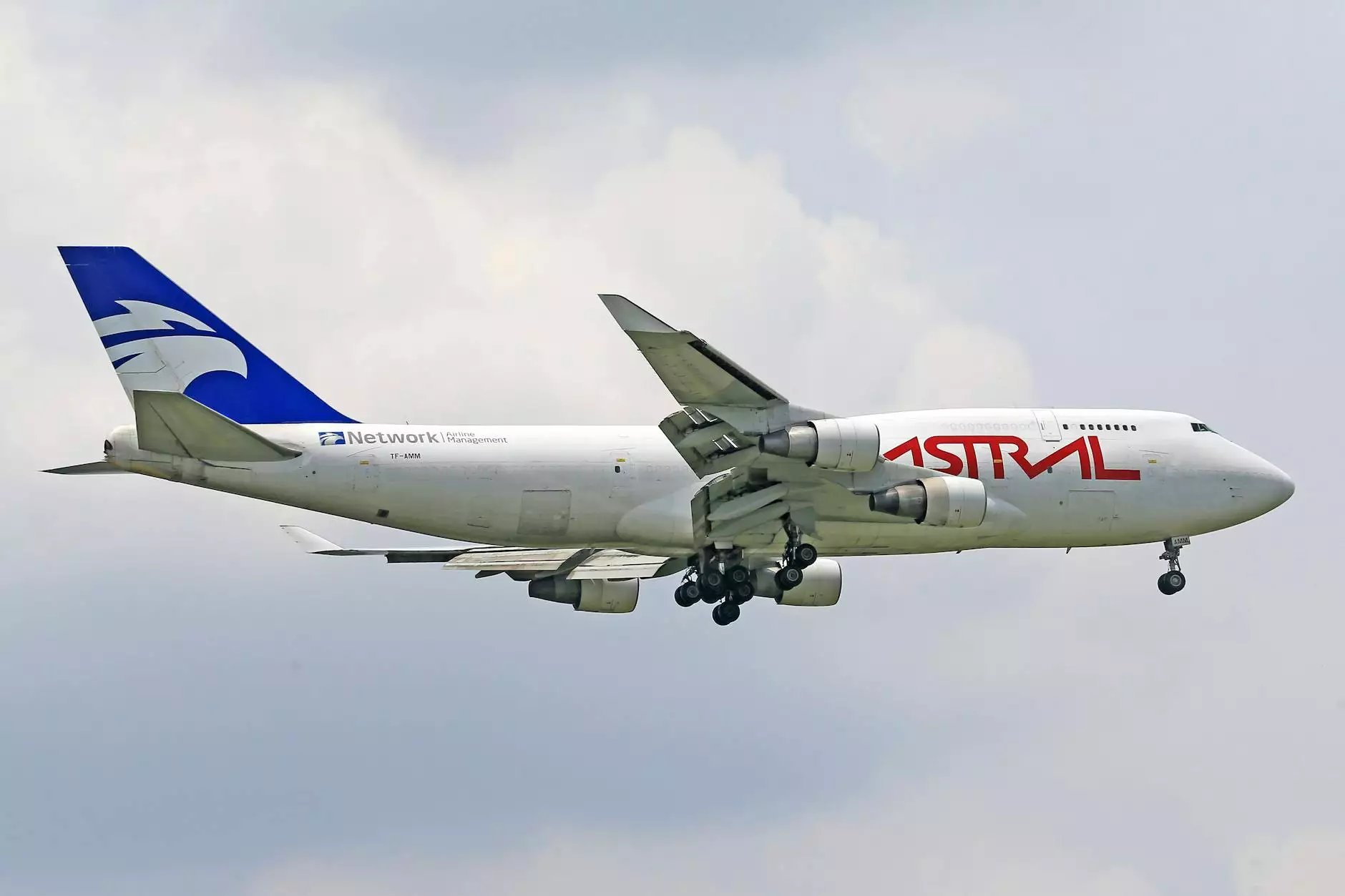Understanding Air Freight Charges Per Kg: A Comprehensive Guide

Introduction
In today's globalized economy, businesses rely heavily on efficient methods of transporting goods across vast distances. One of the most used logistics solutions is air freight. This method provides speed and reliability, making it a preferred choice for time-sensitive shipments. However, one of the critical aspects that businesses must consider when using air freight is the air freight charges per kg.
What Are Air Freight Charges?
Air freight charges refer to the fees charged by logistics companies for transporting goods via cargo aircraft. These charges are usually calculated based on the weight or volume of the cargo being shipped and can vary significantly depending on various factors.
Factors Influencing Air Freight Charges
Understanding the components that affect the air freight charges per kg is essential for businesses seeking to optimize their shipping expenses. Here are some key factors:
- Weight vs. Volume: Most air freight charges are calculated by either the actual weight of the shipment or the dimensional weight. It’s crucial to calculate both to determine which method results in higher charges.
- Shipping Distance: The distance between the origin and destination of the goods plays a significant role in determining costs. Longer distances usually incur higher charges.
- Type of Cargo: Different types of goods have varying levels of risk associated with them. Fragile items or perishables may incur additional handling charges.
- Time Sensitivity: The urgency of delivery can also affect shipping charges. Expedite services typically come at a premium.
- Fuel Prices: Fluctuating fuel prices can impact operational costs, thereby influencing air freight rates.
- Customs and Regulatory Fees: Depending on the destination country's regulations, import duties and paperwork might add to the overall shipping cost.
How Are Air Freight Charges Calculated?
Calculating air freight charges per kg is not as straightforward as it may seem. It usually involves several components:
- Base Rate: This is the basic cost established by the air carrier for the shipment.
- Weight Charge: The charge based on the total weight of the cargo. The charge is typically applied per kilogram.
- Fuel Surcharge: An additional charge that varies based on the current fuel prices, often fluctuating week by week.
- Security Surcharge: A fee imposed for implementing necessary security measures associated with air shipping.
- Handling Fees: Charges incurred for loading, unloading, and managing the cargo at airports.
Air Freight Charges Per Kg: What to Expect?
The air freight charges per kg can vary significantly depending on the factors mentioned earlier. On average, businesses can expect to pay anywhere from $2.00 to $8.00 per kg for standard air freight services. Premium services, special handling, or shipping hazardous materials may raise these rates.
Keeping up with market trends can help businesses make informed decisions about their shipping strategies. Always a good practice to compare rates from multiple freight forwarders to get the best deal.
The Benefits of Air Freight
Despite potentially higher costs, air freight offers numerous advantages for businesses, including:
- Speed: Air freight is the fastest method of shipping, making it ideal for urgent shipments.
- Reliability: Scheduled freight services minimize delays and ensure reliable arrival times.
- Global Reach: Access to almost any destination worldwide, making it perfect for international trade.
- Security: Enhanced security protocols during air transit reduce the risk of theft or loss.
Tips for Reducing Air Freight Charges
Businesses can take several steps to lower their air freight charges per kg. Here are some practical suggestions:
- Consolidate Shipments: Combine smaller shipments into one larger shipment to reduce per kg costs.
- Use Economical Carriers: Research carriers and choose ones that offer competitive rates without compromising service quality.
- Optimize Packaging: Use lightweight packaging materials to lower the overall weight and dimensional volume of your shipment.
- Plan Ahead: Schedule shipments in advance when possible to avoid expedited shipping costs.
- Negotiate Rates: Be proactive in negotiating rates with freight forwarders, especially if you're a regular customer.
Understanding the Role of Freight Forwarders
Freight forwarders are essential players in the air freight industry. They act as intermediaries between shippers and carriers, handling logistics and documentation on behalf of their clients. Utilizing a freight forwarder can help businesses navigate complex logistics and may even lead to reduced air freight charges per kg through better rate negotiation.
Conclusion
Air freight remains a crucial logistics solution in the fast-paced world of international trade. Understanding air freight charges per kg is vital for businesses looking to optimize their shipping strategies and costs. By becoming acquainted with the factors influencing these charges and leveraging the tips above, businesses can ensure they make the most informed decisions in their shipping processes.
For more information on air freight and logistics solutions, visit cargobooking.aero for expert insights and tailored shipping services.
air freight charges per kg








